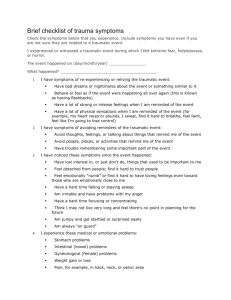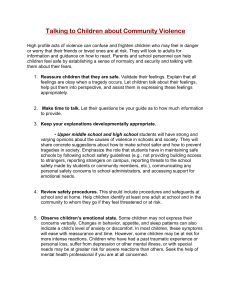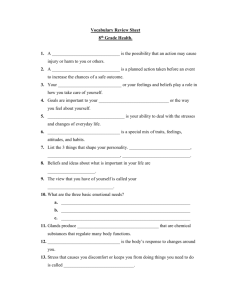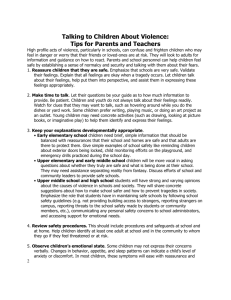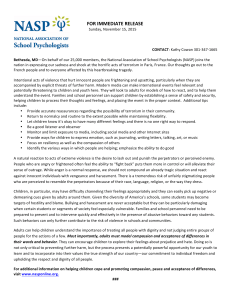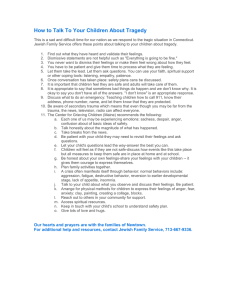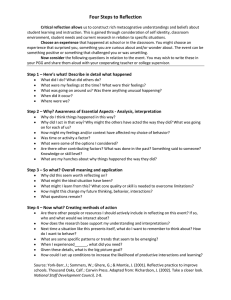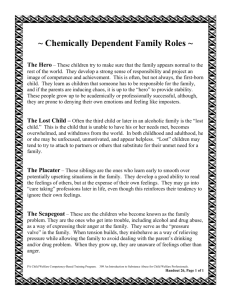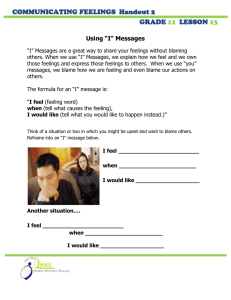Talking with Children about Violence
advertisement
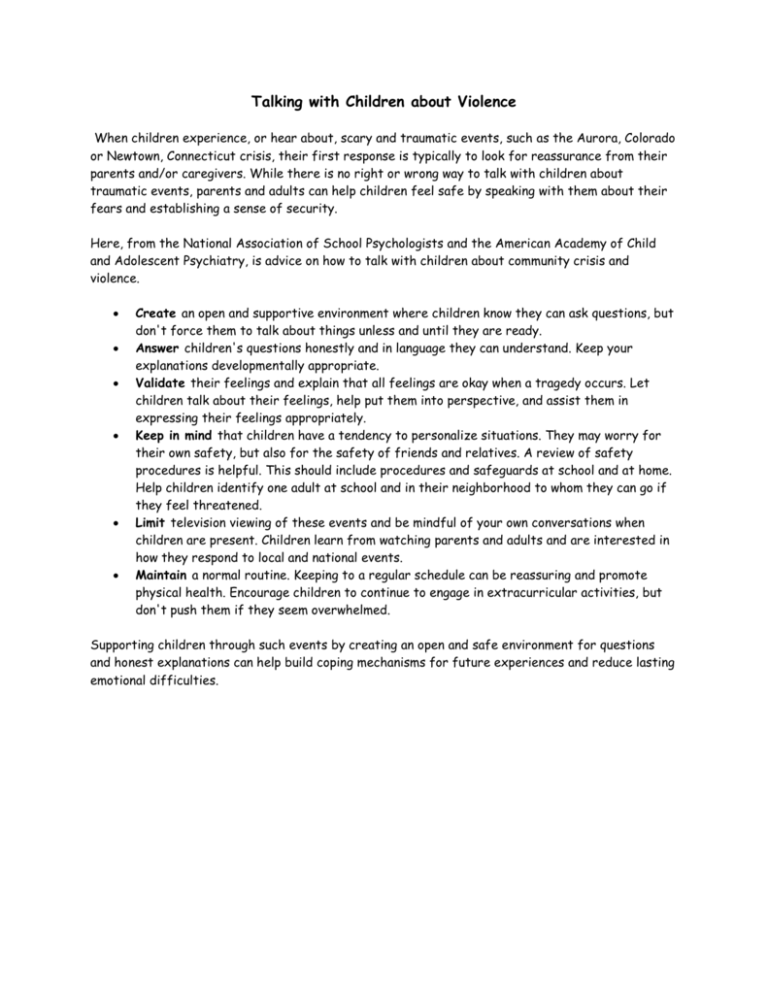
Talking with Children about Violence When children experience, or hear about, scary and traumatic events, such as the Aurora, Colorado or Newtown, Connecticut crisis, their first response is typically to look for reassurance from their parents and/or caregivers. While there is no right or wrong way to talk with children about traumatic events, parents and adults can help children feel safe by speaking with them about their fears and establishing a sense of security. Here, from the National Association of School Psychologists and the American Academy of Child and Adolescent Psychiatry, is advice on how to talk with children about community crisis and violence. Create an open and supportive environment where children know they can ask questions, but don't force them to talk about things unless and until they are ready. Answer children's questions honestly and in language they can understand. Keep your explanations developmentally appropriate. Validate their feelings and explain that all feelings are okay when a tragedy occurs. Let children talk about their feelings, help put them into perspective, and assist them in expressing their feelings appropriately. Keep in mind that children have a tendency to personalize situations. They may worry for their own safety, but also for the safety of friends and relatives. A review of safety procedures is helpful. This should include procedures and safeguards at school and at home. Help children identify one adult at school and in their neighborhood to whom they can go if they feel threatened. Limit television viewing of these events and be mindful of your own conversations when children are present. Children learn from watching parents and adults and are interested in how they respond to local and national events. Maintain a normal routine. Keeping to a regular schedule can be reassuring and promote physical health. Encourage children to continue to engage in extracurricular activities, but don't push them if they seem overwhelmed. Supporting children through such events by creating an open and safe environment for questions and honest explanations can help build coping mechanisms for future experiences and reduce lasting emotional difficulties.


